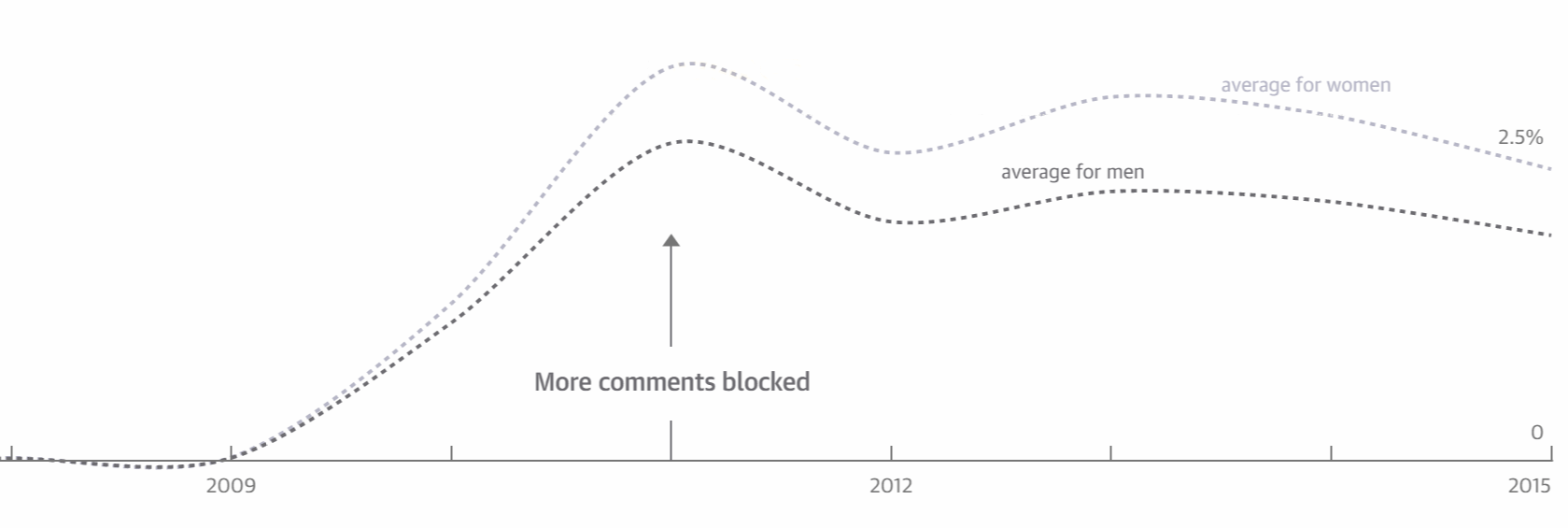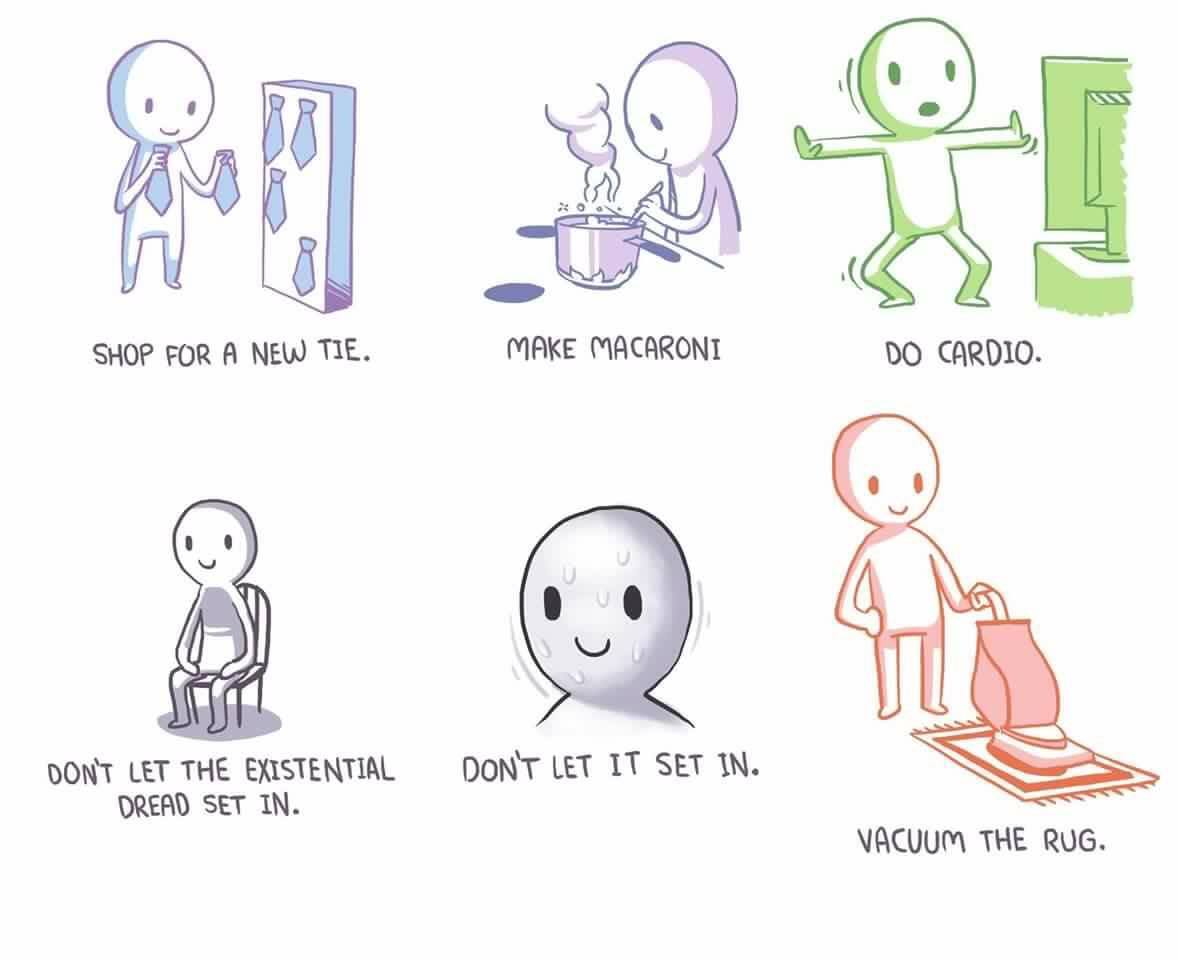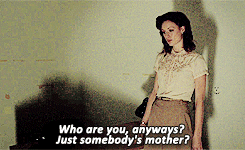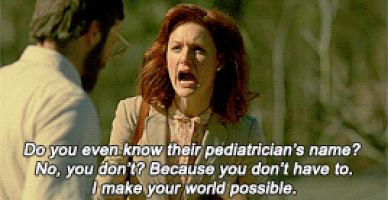I wrote last week about the new nonfiction book Hillbilly Elegy: A Memoir of a Family and a Culture in Crisis by J.D. Vance, the Yale Law School graduate who grew up in the poverty and chaos of an Appalachian clan. The book is an American classic, an extraordinary testimony to the brokenness of the white working class, but also its strengths. It’s one of the best books I’ve ever read. With the possible exception of Yuval Levin’s The Fractured Republic, for Americans who care about politics and the future of our country, Hillbilly Elegy is the most important book of 2016. You cannot understand what’s happening now without first reading J.D. Vance. His book does for poor white people what Ta-Nehisi Coates’s book did for poor black people: give them voice and presence in the public square.
This interview I just did with Vance in two parts (the final question I asked after Trump’s convention speech) shows why.
RD: A friend who moved to West Virginia a couple of years ago tells me that she’s never seen poverty and hopelessness like what’s common there. And she says you can drive through the poorest parts of the state, and see nothing but TRUMP signs. Reading “Hillbilly Elegy” tells me why. Explain it to people who haven’t yet read your book.
J.D. VANCE: The simple answer is that these people–my people–are really struggling, and there hasn’t been a single political candidate who speaks to those struggles in a long time. Donald Trump at least tries.
What many don’t understand is how truly desperate these places are, and we’re not talking about small enclaves or a few towns–we’re talking about multiple states where a significant chunk of the white working class struggles to get by. Heroin addiction is rampant. In my medium-sized Ohio county last year, deaths from drug addiction outnumbered deaths from natural causes. The average kid will live in multiple homes over the course of her life, experience a constant cycle of growing close to a “stepdad” only to see him walk out on the family, know multiple drug users personally, maybe live in a foster home for a bit (or at least in the home of an unofficial foster like an aunt or grandparent), watch friends and family get arrested, and on and on. And on top of that is the economic struggle, from the factories shuttering their doors to the Main Streets with nothing but cash-for-gold stores and pawn shops.
The two political parties have offered essentially nothing to these people for a few decades. From the Left, they get some smug condescension, an exasperation that the white working class votes against their economic interests because of social issues, a la Thomas Frank (more on that below). Maybe they get a few handouts, but many don’t want handouts to begin with.
From the Right, they’ve gotten the basic Republican policy platform of tax cuts, free trade, deregulation, and paeans to the noble businessman and economic growth. Whatever the merits of better tax policy and growth (and I believe there are many), the simple fact is that these policies have done little to address a very real social crisis. More importantly, these policies are culturally tone deaf: nobody from southern Ohio wants to hear about the nobility of the factory owner who just fired their brother.
Trump’s candidacy is music to their ears. He criticizes the factories shipping jobs overseas. His apocalyptic tone matches their lived experiences on the ground. He seems to love to annoy the elites, which is something a lot of people wish they could do but can’t because they lack a platform.
The last point I’ll make about Trump is this: these people, his voters, are proud. A big chunk of the white working class has deep roots in Appalachia, and the Scots-Irish honor culture is alive and well. We were taught to raise our fists to anyone who insulted our mother. I probably got in a half dozen fights when I was six years old. Unsurprisingly, southern, rural whites enlist in the military at a disproportionate rate. Can you imagine the humiliation these people feel at the successive failures of Bush/Obama foreign policy? My military service is the thing I’m most proud of, but when I think of everything happening in the Middle East, I can’t help but tell myself: I wish we would have achieved some sort of lasting victory. No one touched that subject before Trump, especially not in the Republican Party.
I’m not a hillbilly, nor do I descend from hillbilly stock, strictly speaking. But I do come from poor rural white people in the South. I have spent most of my life and career living among professional class urbanite, most of them on the East Coast, and the barely-banked contempt they — the professional-class whites, I mean — have for poor white people is visceral, and obvious to me. Yet it is invisible to them. Why is that? And what does it have to do with our politics today?
I know exactly what you mean. My grandma (Mamaw) recognized this instinctively. She said that most people were probably prejudiced, but they had to be secretive about it. “We”–meaning hillbillies–“are the only group of people you don’t have to be ashamed to look down upon.” During my final year at Yale Law, I took a small class with a professor I really admired (and still do). I was the only veteran in the class, and when this came up somehow in conversation, a young woman looked at me and said, “I can’t believe you were in the Marines. You just seem so nice. I thought that people in the military had to act a certain way.” It was incredibly insulting, and it was my first real introduction to the idea that this institution that was so important among my neighbors was looked down upon in such a personal way. To this lady, to be in the military meant that you had to be some sort of barbarian. I bit my tongue, but it’s one of those comments I’ll never forget.
The “why” is really difficult, but I have a few thoughts. The first is that humans appear to have some need to look down on someone; there’s just a basic tribalistic impulse in all of us. And if you’re an elite white professional, working class whites are an easy target: you don’t have to feel guilty for being a racist or a xenophobe. By looking down on the hillbilly, you can get that high of self-righteousness and superiority without violating any of the moral norms of your own tribe. So your own prejudice is never revealed for what it is.
A lot of it is pure disconnect–many elites just don’t know a member of the white working class. A professor once told me that Yale Law shouldn’t accept students who attended state universities for their undergraduate studies. (A bit of background: Yale Law takes well over half of its student body from very elite private schools.) “We don’t do remedial education here,” he said. Keep in mind that this guy was very progressive and cared a lot about income inequality and opportunity. But he just didn’t realize that for a kid like me, Ohio State was my only chance–the one opportunity I had to do well in a good school. If you removed that path from my life, there was nothing else to give me a shot at Yale. When I explained that to him, he was actually really receptive. He may have even changed his mind.
What does it mean for our politics? To me, this condescension is a big part of Trump’s appeal. He’s the one politician who actively fights elite sensibilities, whether they’re good or bad. I remember when Hillary Clinton casually talked about putting coal miners out of work, or when Obama years ago discussed working class whites clinging to their guns and religion. Each time someone talks like this, I’m reminded of Mamaw’s feeling that hillbillies are the one group you don’t have to be ashamed to look down upon. The people back home carry that condescension like a badge of honor, but it also hurts, and they’ve been looking for someone for a while who will declare war on the condescenders. If nothing else, Trump does that.
This is where, to me, there’s a lot of ignorance around “Teflon Don.” No one seems to understand why conventional blunders do nothing to Trump. But in a lot of ways, what elites see as blunders people back home see as someone who–finally–conducts themselves in a relatable way. He shoots from the hip; he’s not constantly afraid of offending someone; he’ll get angry about politics; he’ll call someone a liar or a fraud. This is how a lot of people in the white working class actually talk about politics, and even many elites recognize how refreshing and entertaining it can be! So it’s not really a blunder as much as it is a rich, privileged Wharton grad connecting to people back home through style and tone. Viewed like this, all the talk about “political correctness” isn’t about any specific substantive point, as much as it is a way of expanding the scope of acceptable behavior. People don’t want to believe they have to speak like Obama or Clinton to participate meaningfully in politics, because most of us don’t speak like Obama or Clinton.
On the other hand, as Hillbilly Elegy says so well, that reflexive reverse-snobbery of the hillbillies and those like them is a real thing too, and something that undermines their prospects in life. Is there any way for it to be overcome, other than getting out of the bubble, as you did?
I’m not sure we can overcome it entirely. Nearly everyone in my family who has achieved some financial success for themselves, from Mamaw to me, has been told that they’ve become “too big for their britches.” I don’t think this value is all bad. It forces us to stay grounded, reminds us that money and education are no substitute for common sense and humility. But, it does create a lot of pressure not to make a better life for yourself, and let’s face it: when you grow up in a dying steel town with very few middle class job prospects, making a better life for yourself is often a binary proposition: if you don’t get a good job, you may be stuck on welfare for the rest of your life.
I’m a big believer in the power to change social norms. To take an obvious recent example, I see the decline of smoking as not just an economic or regulatory matter, but something our culture really flipped on. So there’s value in all of us–whether we have a relatively large platform or if our platform is just the people who live with us–trying to be a little kinder to the kids who want to make a better future for themselves. That’s a big part of the reason I wrote the book: it’s meant not just for elites, but for people from my own clan, in the hopes that they’ll better appreciate the ways they can help (or hurt) their own kin.
At the same time, the hostility between the working class and the elites is so great that there will always be some wariness toward those who go to the other side. And can you blame them? A lot of these people know nothing but judgment and condescension from those with financial and political power, and the thought of their children acquiring that same hostility is noxious. It may just be the sort of value we have to live with.
The odd thing is, the deeper I get into elite culture, the more I see value in this reverse snobbery. It’s the great privilege of my life that I’m deep enough into the American elite that I can indulge a little anti-elitism. Like I said, it keeps you grounded, if nothing else! But it would have been incredibly destructive to indulge too much of it when I was 18.
I live in the rural South now, where I was born, and I see the same kind of social pathologies among some poor whites that you write about in Hillbilly Elegy. I also see the same thing among poor blacks, and have heard from a few black friends who made it out as you did the same kind of stories about how their own people turned on them and accused them of being traitors to their family and class — this, only for getting an education and building stable lives for themselves. The thing that so few of us either understand or want to talk about is that nobody who lives the way these poor black and white people do is ever going to amount to anything. There’s never going to be an economy rich enough or a government program strong enough to compensate for the lack of a stable family and the absence of self-discipline. Are Americans even capable of hearing that anymore?
Judging by the current political conversation, no: Americans are not capable of hearing that anymore. I was speaking with a friend the other night, and I made the point that the meta-narrative of the 2016 election is learned helplessness as a political value. We’re no longer a country that believes in human agency, and as a formerly poor person, I find it incredibly insulting. To hear Trump or Clinton talk about the poor, one would draw the conclusion that they have no power to affect their own lives. Things have been done to them, from bad trade deals to Chinese labor competition, and they need help. And without that help, they’re doomed to lives of misery they didn’t choose.
Obviously, the idea that there aren’t structural barriers facing both the white and black poor is ridiculous. Mamaw recognized that our lives were harder than rich white people, but she always tempered her recognition of the barriers with a hard-noses willfulness: “never be like those a–holes who think the deck is stacked against them.” In hindsight, she was this incredibly perceptive woman. She recognized the message my environment had for me, and she actively fought against it.
There’s good research on this stuff. Believing you have no control is incredibly destructive, and that may be especially true when you face unique barriers. The first time I encountered this idea was in my exposure to addiction subculture, which is quite supportive and admirable in its own way, but is full of literature that speaks about addiction as a disease. If you spend a day in these circles, you’ll hear someone say something to the effect of, “You wouldn’t judge a cancer patient for a tumor, so why judge an addict for drug use.” This view is a perfect microcosm of the problem among poor Americans. On the one hand, the research is clear that there are biological elements to addiction–in that way, it does mimic a disease. On the other hand, the research is also clear that people who believe their addiction is a biologically mandated disease show less ability to resist it. It’s this awful catch-22, where recognizing the true nature of the problem actually hinders the ability to overcome.
Interestingly, both in my conversations with poor blacks and whites, there’s a recognition of the role of better choices in addressing these problems. The refusal to talk about individual agency is in some ways a consequence of a very detached elite, one too afraid to judge and consequently too handicapped to really understand. At the same time, poor people don’t like to be judged, and a little bit of recognition that life has been unfair to them goes a long way. Since Hillbilly Elegy came out, I’ve gotten so many messages along the lines of: “Thank you for being sympathetic but also honest.”
I think that’s the only way to have this conversation and to make the necessary changes: sympathy and honesty. It’s not easy, especially in our politically polarized world, to recognize both the structural and the cultural barriers that so many poor kids face. But I think that if you don’t recognize both, you risk being heartless or condescending, and often both.
On the other hand, as a conservative, I grow weary of fellow middle-class conservatives acting as if it were possible simply to bootstrap your way out of poverty. My dad was able to raise my sister and me in the 1970s on a civil servant’s salary, supplemented by my mom’s small salary as a school bus driver. I doubt this would be possible today. You’re a conservative who has known poverty and powerlessness as well as wealth and privilege. What do you have to say to your fellow conservatives?
I think you hit the nail right on the head: we need to judge less and understand more. It’s so easy for conservatives to use “culture” as an ending point in a discussion–an excuse to rationalize their worldview and then move on–rather than a starting point. I try to do precisely the opposite in Hillbilly Elegy. This book should start conversations, and it is successful, it will.
The Atlantic‘s Ta-Nehisi Coates, who I often disagree with, has made a really astute point about culture and the way it has been deployed against the black poor. His point, basically, is that “culture” is little more than an excuse to blame black people for various pathologies and then move on. So it’s hardly surprising that when poor people, especially poor black folks, hear “culture,” they instinctively run for the hills.
But let’s just think about what culture really means, to borrow an example from my life. One of the things I mention in the book is that domestic strife and family violence are cultural traits–they’re just there, and everyone experiences them in one form or another. I learned domestic strife from the moment I was born, from more than 15 stepdads and boyfriends I encountered, to the domestic violence case that nearly tore my family apart (I was the primary victim). So predictably, by the time I got married, I wasn’t a great spouse. I had to learn, with the help of my aunt and sister (both of whom had successful marriages), but especially with the help of my wife, how not to turn every small disagreement into a shouting match or a public scene. Too many conservatives look at that situation, say “well that’s a cultural problem, nothing we can do,” and then move on. They’re right that it’s a cultural problem: I learned domestic strife  from my mother, and she learned it from her parents.
from my mother, and she learned it from her parents.
But to speak “culture” and then move on is a total copout, and there are public policy solutions to draw from experiences like this: how could my school have better prepared me for domestic life? how could child welfare services have given me more opportunities to spend time with my Mamaw and my aunt, rather than threatening me–as they did–with the promise of foster care if I kept talking? These are tough, tough problems, but they’re not totally immune to policy interventions. Neither are they entirely addressable by government. It’s just complicated.
That’s just one small example, obviously, and there are many more in the book. But I think this unwillingness to deal with tough issues–or worse, to pretend they’ll all go away if we can hit 4 percent growth targets–is a significant failure of modern conservative politics. And looking at the political landscape, this failure may very well have destroyed the conservative movement as we used to know it.
And what do you have to say to liberals?
Well, it’s almost the flip side: stop pretending that every problem is a structural problem, something imposed on the poor from the outside. I see a significant failure on the Left to understand how these problems develop. They see rising divorce rates as the natural consequence of economic stress. Undoubtedly, that’s partially true. Some of these family problems run far deeper. They see school problems as the consequence of too little money (despite the fact that the per pupil spend in many districts is quite high), and ignore that, as a teacher from my hometown once told me, “They want us to be shepherds to these kids, but they ignore that many of them are raised by wolves.” Again, they’re not all wrong: certainly some schools are unfairly funded. But there’s this weird refusal to deal with the poor as moral agents in their own right. In some cases, the best that public policy can do is help people make better choices, or expose them to better influences through better family policy (like my Mamaw).
There was a huge study that came out a couple of years ago, led by the Harvard economist Raj Chetty. He found that two of the biggest predictors of low upward mobility were 1) living in neighborhoods with concentrated poverty and 2) growing up in a neighborhood with a lot of single mothers. I recall that some of the news articles about the study didn’t even mention the single mother conclusion. That’s a massive oversight! Liberals have to get more comfortable with dealing with the poor as they actually are. I admire their refusal to look down on the least among us, but at some level, that can become an excuse to never really look at the problem at all.
In Hillbilly Elegy, I noticed the parallel between two disciplined forms of life that enabled you and your biological father to transcend the chaos that dragged down so many others y’all knew. You had the US Marine Corps; he had fundamentalist Christianity. How did they work inner transformation within you both?
Well, I think it’s important to point out that Christianity, in the quirky way I’ve experienced it, was really important to me, too. For my dad, the way he tells it is that he was a hard partier, he drank a lot, and didn’t have a lot of direction. His Christian faith gave him focus, forced him to think hard about his personal choices, and gave him a community of people who demanded, even if only implicitly, that he act a certain way. I think we all understate the importance of moral pressure, but it helped my dad, and it has certainly helped me! There’s obviously a more explicitly religious argument here, too. If you believe as I do, you believe that the Holy Spirit works in people in a mysterious way. I recognize that a lot of secular folks may look down on that, but I’d make one important point: that not drinking, treating people well, working hard, and so forth, requires a lot of willpower when you didn’t grow up in privilege. That feeling–whether it’s real or entirely fake–that there’s something divine helping you and directing your mind and body, is extraordinarily powerful.
General Chuck Krulak, a former commandant of the Marine Corps, once said that the most important thing the Corps does for the country is “win wars and make Marines.” I didn’t understand that statement the first time I heard it, but for a kid like me, the Marine Corps was basically a four-year education in character and self-management. The challenges start small–running two miles, then three, and more. But they build on each other. If you have good mentors (and I certainly did), you are constantly given tasks, yelled at for failing, advised on how not to fail next time, and then given another try. You learn, through sheer repetition, that you can do difficult things. And that was quite revelatory for me. It gave me a lot of self-confidence. If I had learned helplessness from my environment back home, four years in the Marine Corps taught me something quite different.
The other thing the Marine Corps did is hold our hands and prevent us from making stupid decisions. It didn’t work on everyone, of course, but I remember telling my senior noncommissioned officer that I was going to buy a car, probably a BMW. “Stop being an idiot and go get a Honda.” Then I told him that I had been approved for a new Honda, at the dealer’s low interest rate of 21.9 percent. “Stop being an idiot and go to the credit union.” He then ordered another Marine to take me to the credit union, open an account, and apply for a loan (the interest rate, despite my awful credit, was around 8 percent). A lot of elites rely on parents or other networks the first time they made these decisions, but I didn’t even know what I didn’t know. The Marine Corps ensured that I learned.
Finally, what did watching Donald Trump’s speech last night make you think about this fall campaign, and the future of the country?
Well, I think the speech itself was a perfect microcosm of why I love and am terrified of Donald Trump. On the one hand, he criticized the elites and actually acknowledge the hurt of so many working class voters. After so many years of Republican politicians refusing to even talk about factory closures, Trump’s message is an oasis in the desert. But of course he spent way too much time appealing to people’s fears, and he offered zero substance for how to improve their lives. It was Trump at his best and worst.
My biggest fear with Trump is that, because of the failures of the Republican and Democratic elites, the bar for the white working class is too low. They’re willing to listen to Trump about rapist immigrants and banning all Muslims because other parts of his message are clearly legitimate. A lot of people think Trump is just the first to appeal to the racism and xenophobia that were already there, but I think he’s making the problem worse.
The other big problem I have with Trump is that he has dragged down our entire political conversation. It’s not just that he inflames the tribalism of the Right; it’s that he encourages the worst impulses of the Left. In the past few weeks, I’ve heard from so many of my elite friends some version of, “Trump is the racist leader all of these racist white people deserve.” These comments almost always come from white progressives who know literally zero culturally working class Americans. And I’m always left thinking: if this is the quality of thought of a Harvard Law graduate, then our society is truly doomed. In a world of Trump, we’ve abandoned the pretense of persuasion. The November election strikes me as little more than a referendum on whose tribe is bigger.
But I remain incredibly optimistic about the future. Maybe that’s the hillbilly resilience in me. Or maybe I’m just an idiot. But if writing this book, and talking with friends and strangers about its message, has taught me anything, it’s that most people are trying incredibly hard to make it, even in this more complicated and scary world. The short view of our country is that we’re doomed. The long view, inherited from my grandparents’ 1930s upbringing in coal country, is that all of us can still control some part of our fate. Even if we are doomed, there’s reason to pretend otherwise.
—
The book is Hillbilly Elegy. You really, really need to read it.
UPDATE: Best e-mail I’ve yet received about this interview:
Mr Dreher, I am writing to thank you for the impressive and thoughtful interview of JD Vance on his book. I am not a conservative. I am a black, gay, immigrant who has been blessed by the dynamic and productive American society we live in. So I am not the average reader of the American Conservative. I came to your article through a friend. So I just wanted to share how refreshing I found to have two white men being able to speak about class, their family experience and acknowledging an experience that is often not visible in our society. The poor rural south that you described and the communities that Mr.. Vance write about are familiar to me. Born in Haiti, growing up in Congo, Africa. I recognize that poverty, I recognize the marginalization and I SO APPRECIATED the conversation about individual agency! That is ultimately where the American dream (if it exists) lives. That deep belief that I as an individual am not a victim and can engage with the world around me! That has been my American lesson. That is the source of the dynamism of this society! Thank you!
UPDATE: Y’all might know that we draw from Shutterstock, a provider of stock photography, for most of our illustrations. That one above was the only one I could find on short notice that showed a normal-looking person at a Trump rally, up close. I thought, “You watch, in real life, that lady is probably rich.”
Sure enough! A reader just wrote:
Your article is excellent and I enjoyed reading it. The woman whose photograph you used is [name, hometown], a friend of my family. She is a multi-millionaire and her daughter went to Mar-a-Lago for birthday parties many years ago. I love the irony of this and thought you would get a laugh.
I did!














